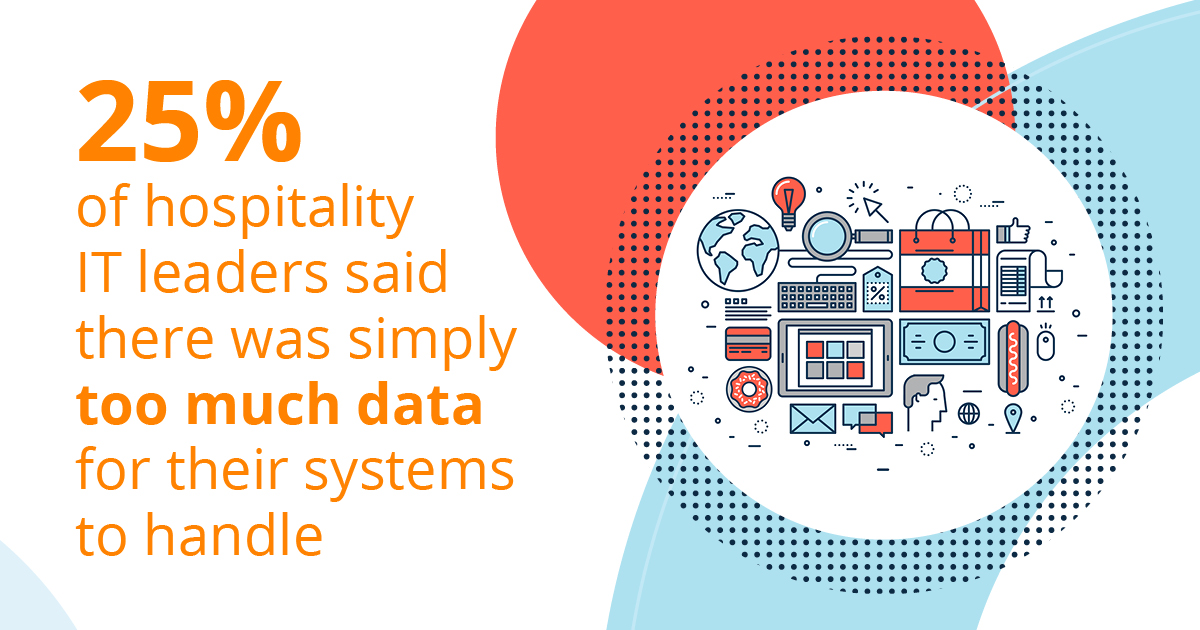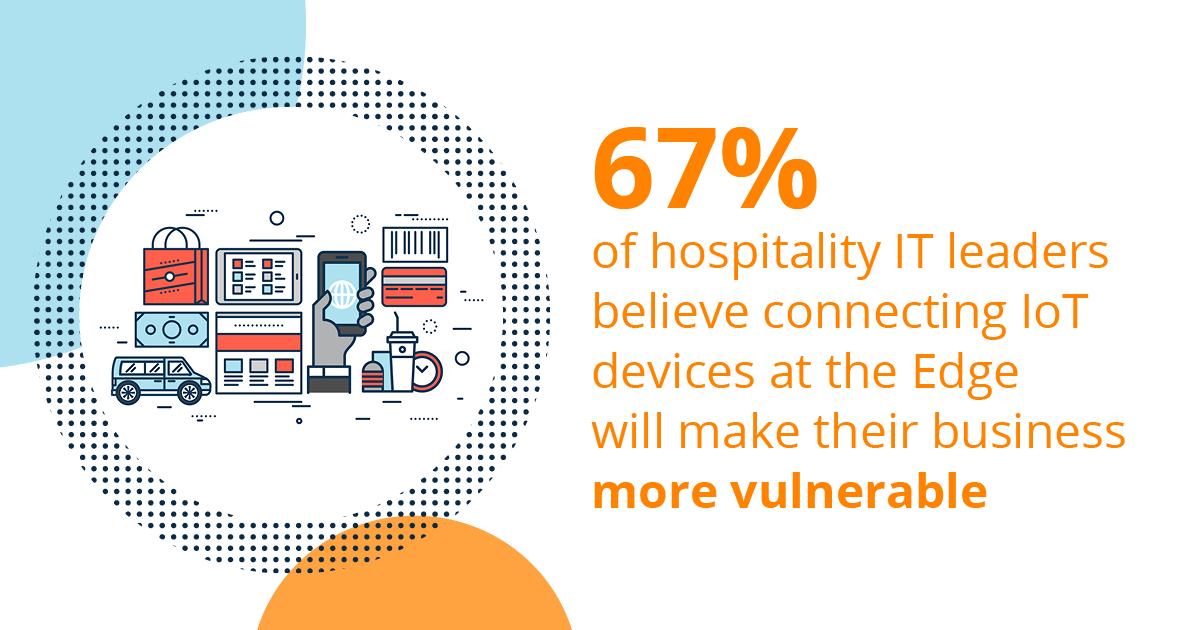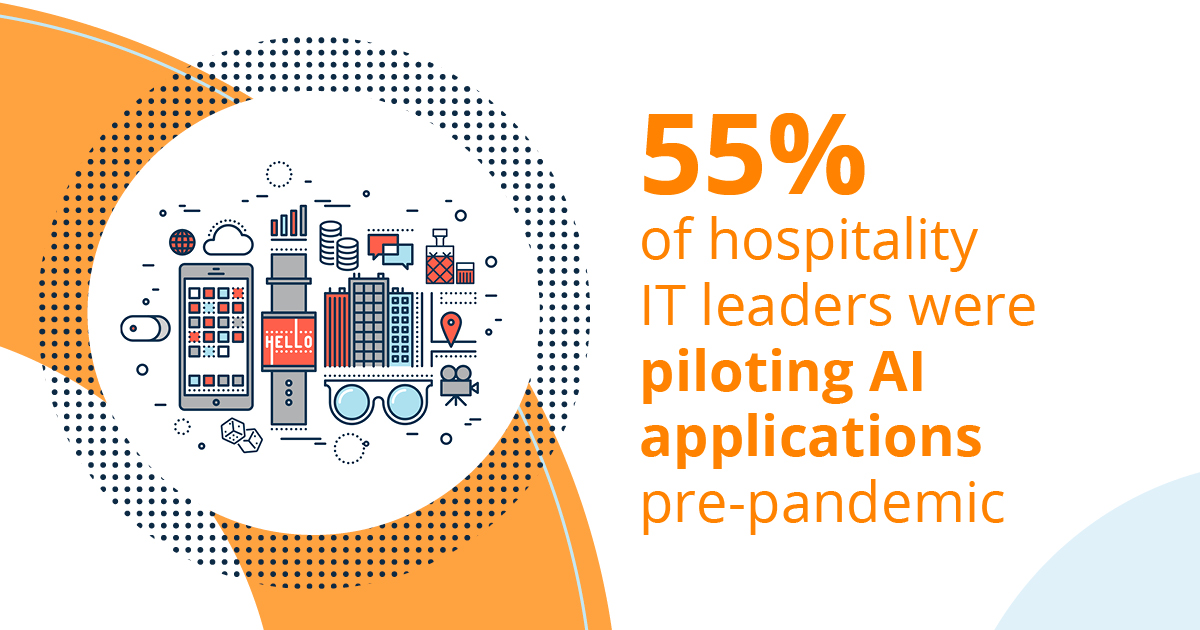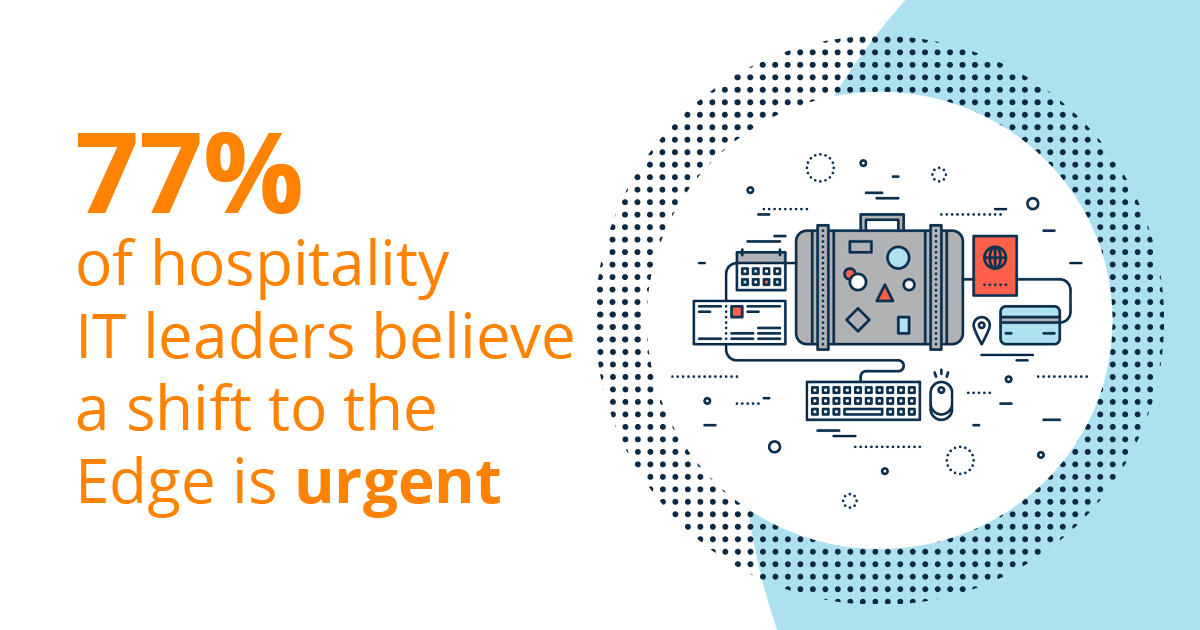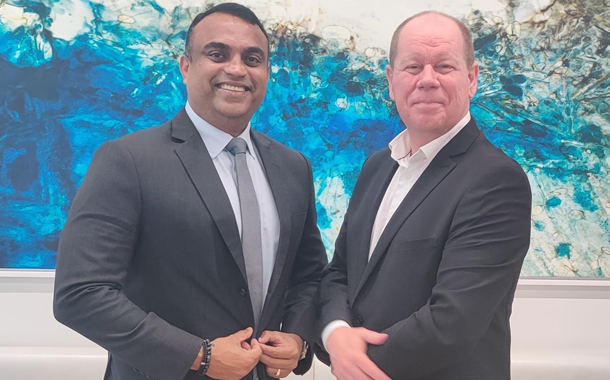As hospitality’s doors finally reopen, the sector is quickly getting a sense of the evolved digital-first world in which it’s now operating. The past year has seen a significant step change in the adoption of technology and digital services, but while some hospitality businesses were able to welcome online models, huge swathes of the industry were forced to remain dormant, leaving many digital advancements relatively untested or stagnating. Now, the whole sector must quickly accelerate its digital transformation to fuel long-term recovery, or risk customer abandonment and falling further behind.
According to research by Aruba, a HPE company, as of last year the hospitality sector was in a healthy – but not leading – place in its adoption of advanced technologies and moving computing to the Edge. Over half of hospitality IT leaders had started to implement trials or applications in areas such as artificial intelligence (AI) (55%), Internet of Things (IoT) (70%) and machine learning (57%). However, that compares to figures of up to 75% for AI in the financial services industry, or 77% for IoT in retail, distribution, and transport.
But it was also already struggling significantly with the data these new technologies produces. A quarter (25%) of IT leaders in hospitality said there was too much data for their systems to handle, and that they could not process the data they collected quickly enough to act (25%). With data levels increasing exponentially over the past year, thanks to the Covid-induced rise of smart technologies, IoT sensors, and connected devices the depth of data sprawl will only be greater.
To get a handle on all this data and deliver the type of differentiated customer experiences to guarantee hospitality’s recovery, a new eBook by Aruba, ’Serving Hospitality at the Edge’, lays out three key areas of focus for organizations in the sector – providing a clear roadmap to setting up the right network for future success.
Step 1: Process data efficiency
Organizations must follow data to the Edge of the network to process it more efficiently, capturing it in real-time at its source versus transferring it back to a centralized hub. Aruba’s research showed that 54% of hospitality IT leaders were already using or trialling Edge technologies pre-pandemic, and a further 16% were already computing at the Edge. While this shows a smaller proportion of hospitality businesses are operating at the Edge compared to other industries (28% across all sectors), these pioneers are successfully delivering new outcomes, such as utilizing facial recognition technology (49%), experimenting with live, real-time, multi-language translation (45%), and creating enhanced augmented and virtual reality experiences (43%) as a result.
Step 2: Analyze data intelligently
Capturing all that data is one thing, but being able to act on it, is something else entirely. That is why there is a growing role for AI to not only help enhance customer service, provide personalized guest experiences, and support brand management – but also to aid IT teams with network troubleshooting and issues resolution to avoid any costly downtime or damage the user experience. As AI becomes more sophisticated and machine learning models get access to more and more data, its significance in hospitality will continue to grow.
Step 3: Store data securely
Against the backdrop of rising technology implementation, there’s a growing need to police increasing levels of app and device connectivity. And this is causing a headache for hospitality business, with 67% of decision makers believing that connecting IoT devices at the Edge would make their business more vulnerable. It will be critical for hospitality organizations to put the right solutions in place to ensure they lock down their data enough to reassure customers without freezing out further digital innovation.
Aruba believes a Zero Trust approach to security is part of the answer here, but network visibility and device identification also become key – providing a single-pane-of-glass view of increasingly fragmented networks and giving IT teams the ability to grant differentiated levels of data access according to device or user group (i.e. guests or staff).
Morten Illum, VP EMEA of Aruba, concludes: “The pandemic presented endless challenges to the hospitality sector and while there have been pockets of digital innovation and success, many businesses have been unable to test and trial digital advancements, putting them at a disadvantage. Now, they find themselves playing catch up in a new digital-first world. Consumer behaviors, expectations and demands have shifted exponentially, and hospitality organizations must demonstrate that they can respond quickly to these new requirements to tempt them back through their doors.
“They have a tremendous opportunity to make changes now to provide superior services in the future. But to do this successfully they must get a handle on the information flow in and out their systems. That is why it is critical that the sector evolves its network capabilities to ensure it has the infrastructure and solutions in place to support the next-generation technologies and experiences that will define their organization’s digital transformation in 2021 and beyond.”
